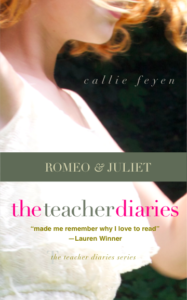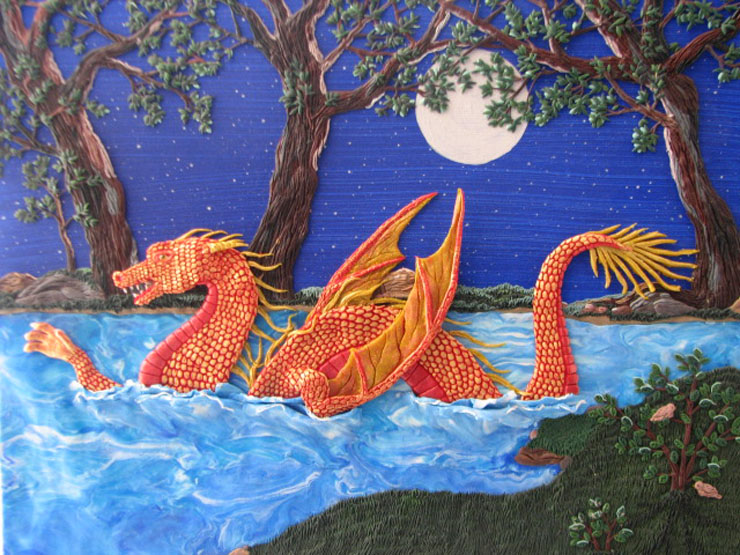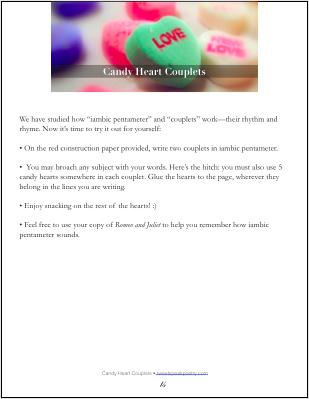My first kiss happened at my best friend’s house. It was a Saturday night in April. I was fifteen.
Before the kiss happened, I was watching Eddie Murphy’s Delirious with Celena and her brother Andres. Delirious is raunchy and hilarious and the three of us knew almost every line of Murphy’s stand-up routine. I remember we were laughing so hard I wasn’t sure we’d breathe again.
Before Neal kissed me, he’d dated Celena. For a while. Like, they were in love. I knew this. Most of Oak Park, Illinois knew this. And since I’m already walking into awkward territory, I may as well be completely honest and explain that I saw Andres just about every day and he was quiet and funny and I didn’t mind watching him play basketball with his friends. I don’t think he minded that I was watching, either.
So the three of us are watching Eddie Murphy tell a story about running after an ice-cream truck, and the stage lights are reflecting off his red leather pants, when Neal knocks on the door looking for me—and the next thing I know I’m standing outside, my back to the little Episcopalian church kittie-corner to Celena’s house, looking into Neal’s eyes and inhaling all the Drakkar he’d put on. You know what happens next.
How could I do this to Celena? She was crushed when she and Neal broke up. You know those phrases, “there for each other through thick and thin,” or, “two peas in a pod”? That was me and Celena. Plus, there was something unsaid between Andres and I, and I go and kiss his sister’s ex-boyfriend outside his house in the middle of one of the greatest stand-up comedy shows of all time. How could I let this happen?
I’ll tell you how. Neal had a haircut like no other boy I knew. It was spiky and shaggy and messy and I used to stare at it in Mr. Gates’s 8th-grade English class. I’d wonder how he got it like that and why the other boys wouldn’t do the same with their hair. (We girls were all curling our bangs so it looked like we had giant caterpillars sleeping on our foreheads. Somebody cool and beautiful obviously started that trend, and we followed suit just as fast as we could kick off our jelly shoes and buy some Aqua Net.)
Neal was an artist. He drew on everything. His homework, his shoes, his textbooks. When he wrote me notes, he always included cartoon guys—silly and scary—in the margins of his letters. My first crush was Wil Wheaton’s character in the movie, Stand By Me. All my friends were into Corey Feldman and River Phoenix. Not me. I liked the storyteller. The quiet artist. Neal told stories with his cartoons.
Finally, there was the Howard Jones T-shirt. That’s right, Howard Jones. The one whose songs you probably hear when you’re getting a cavity filled. Sometimes, Neal wore a Howard Jones concert tour shirt to school and I lost my mind. It was black with white print and a thick, light blue stripe that was off-center. I could think of nothing else the days he wore his Howard Jones T-shirt.
I didn’t pine for Neal. At least, not while he was dating Celena. He and I were in a lot of the same classes together though, and we were buddies. When they broke up, and I found out he was interested in me, it was hard for me to resist.
Still, I was a good kid, and I knew better. What I did makes no sense. Also, Celena knew all this. I told her how I felt about Neal, and she was the one who told me he liked me. She opened the door that Saturday night and pushed me outside with a smile on her face. She knew what was happening and she celebrated my first kiss like only a best friend could.
Two years later, I was at Celena’s, sitting at her dining room table, sobbing over a different boy. When he broke up with me he told me I was monotonous, a word I had to look up in the dictionary. In those days, I wrote the date next to all the words I looked up and 12/5/92 is next to monotonous: tedious, boring, dull, uninteresting, unexciting, you get the picture. I learned the definition one day before my 17th birthday.
This boy started dating someone else—a girl I knew who seemed nice. Celena was in the kitchen with the refrigerator door open when I asked, “Is this how you felt when I did this to you?” She looked at me, shocked. I held her stare for a moment, and then said, “I’m sorry.”
I don’t remember what she said. I know she didn’t’ say, “That’s okay,” or, “I’m your best friend no matter what.” That was never Celena’s style. What I do remember is this: Celena wordlessly walking over to the table where I was and putting a tub of Cool Whip between us. She handed me a candy cane, and she opened up a bag of Chex Mix and sat down, and together we ruined our dinner.
I cannot justify or explain one bit of my behavior in this anecdote, but I can remember, very clearly, all those feelings: how hard I was laughing at Eddie Murphy; that mellow, sweet feeling of hanging out with friends that are as close as family; the way my stomach flipped when Neal knocked on the door; the intense feeling I had standing with him in the dark, the way my eyes stung and my stomach hollowed out when I said I’m sorry to Celena.
I suppose someone could argue that what I felt wasn’t really love, but I did feel something. It was colorful, and vivid, and electric, and I relished whatever it was. I think being a teenager is like tasting cinnamon gum for the first time and realizing what taste buds are. We know sour and sweet, spicy and salty, but not like this.
And Then She Meets Romeo
In the introduction to Romeo and Juliet, Oxford University Press explains that, when we first meet Juliet, she’s talking with her father about marriage. A young man named Paris is asking for Juliet’s hand, and her father wants to know what she thinks. The last sentence in this paragraph reads: “She hasn’t given much thought to the subject, but she’s an obedient child, and she promises to give serious consideration to the man her parents have found for her.”
When I teach Romeo and Juliet, I use this edition, and it is the next one-sentence paragraph I make sure my students and I discuss:
“And then she meets Romeo.”
I think this is a sentence that is felt before it’s understood. Like the events leading up to a first kiss, perhaps the kiss itself. I also think it’s a sentence that ought to be studied, though it may not be as exciting as sitting cross-legged on the floor with your best friend as she asks, “Okay, what happened then? What’d he do then?” Still, I pursue it.
I tell my students that when I was in school, my teachers told me you don’t start a sentence with, “and,” and most paragraphs are made up of three to five sentences.
“I was also told,” I say to my students, “that if you are going to break a rule, you better know why.” Then I ask why these rules were broken.
“Something’s changed,” one student might say. “Something’s different.”
I tell the students this sentence is supposed to feel dramatic because what’s happened to Juliet is dramatic. “Here she is, following all the rules, happy to consider suggestions of her parents, and then something happens.” Someone happens.
“Has this ever happened to you?” I’ll ask. Nobody will answer, but several students will smile.
“It was 5th grade when it happened to me,” I’ll offer, “and I was in Sunday School.” This usually gets the class laughing and riled up. Of all the places to meet Romeo, it probably shouldn’t be in church.
But that’s the thing about love. It shows up anywhere and there’s nothing you can do to stop it. I think we waste time arguing over whether what Romeo and Juliet felt was truly love. They felt something, and it was real and that’s where the story is.
My confession relaxes my classes. They’re entering into an awkward, confusing, romantic story with someone who’s been there. If I had started the lesson stating that Romeo and Juliet were two melodramatic teenagers who made a giant mess of things, I would’ve sent a message to my students that if they ever had (or have) an “And then she meets Romeo” moment, something is wrong with them. They’re wrong for feeling what they’re feeling. They can’t possibly understand what love is and how to handle it.
When do we ever understand what love is and how to handle it? Can you help it when love strikes? Perhaps we’re better suited to study what loves does, rather than how it ought to be managed.
Love breaks rules. We learn this in the introduction, but also in understanding who Romeo and Juliet are: enemies. “My only love sprung from my only hate,” Juliet wails when she learns Romeo is a Montague.
Love puts us at a loss for words: “It is my lady, O it is my love:” Romeo gasps at the sight of Juliet. But then, he cannot finish the couplet: “O that she knew she were!”
And in one of my favorite passages in the entire play, Juliet shows us how love messes with our thoughts:
O serpent heart, hid with a flow’ring face!
Did ever dragon keep so fair a cave?
Beautiful tyrant, fiend angelical!
Dove-feather’d raven, wolvish-ravening lamb!
Despised substance of divinest show!
Just opposite to what thou justly seem’st,
A damned saint, an honourable villain!
O nature, what hadst thou to do in hell
When thou didst bower the spirit of a fiend
In mortal paradise of such sweet flesh?
Was ever book containing such vile matter
So fairly bound? O that deceit should dwell
In such a gorgeous palace!
Indeed, I know all about serpent hearts with flow’ring faces. I’m certain I’ve danced with beautiful tyrants and probably gotten into the cars of a few honourable villains. The dragon might be handsome and keep a swanky cave, but he is still a dragon. We are playing with fire. I’m interested in the stories that come from the burns. Candy Heart Couplets Free Printable Activity for Romeo and Juliet
I like to teach Romeo and Juliet in February because love is on the brains (and hearts) of my students (even more so than normal). I pass out candy message hearts and red construction paper and tell my students they have to create at least two couplets using the words on the hearts.
“These are so cheesy!” they’ll complain. “Yes, they are,” I’ll say.
“Some of these messages are totally inappropriate!” they’ll tell me, and I agree to that. “Use what you got,” I tell them.
Use the awkward. Use the inappropriate. Use the confusion and use the brand new spring air of an April Saturday night. Use the cheap cologne and the Episcopalian Church and use the blue eyes that shine in the night. Use the late apology and the bag of Chex Mix shared between friends.
I think that’s what Shakespeare is doing with this play. He could have made Romeo and Juliet older. In fact, they were older in the original poem by Arthur Brooke. Instead, he gives two kids fresh in their teenage years this love story, and we begin the play with two boys comparing their private parts and what they’d like to do to women with them. (Delirious had nothing on Shakespeare.)
If we’re going to teach Romeo and Juliet, it’s good to know about iambic pentameter and reverse metaphor. It’s good to understand the motives of Tybalt and Paris. It’s important to know the deep hatred the Montagues and Capulets have for one another. But it is equally important to understand what love does, and I only know how to do that by remembering what it’s done to me.
Romeo and Juliet is a tragic story. The tragedy lies in the double suicide, of course, but it also lies in the fact that the two of them don’t have a chance to see if anything can grow from their frantic love.
A student I once had wrote, “Nothing beautiful has no scars,” and I think about the friendship I have with Celena. The two of us met when we were Juliet’s age. We have shared so many laughs and secrets and big life events, including a first kiss. Neal has her first kiss, too. “It makes the story of our lives even better!” Celena told me when I brought this tidbit up recently.
I agree, even though I still can’t explain why I did what I did (other than the fact that Neal was wearing that damn Howard Jones T-shirt that night). Sometimes there’s nothing to explain except to sit across the table from one another, share a bag of Chex Mix, and dip candy canes into Cool Whip. Two burned, beautiful girls—marked by Romeo.
Featured photo by Monica C. Webster, and Printable Activity photo by Brent, Creative Commons, via Flickr. Post by Callie Feyen.

- Poetry Prompt: Courage to Follow - July 24, 2023
- Poetry Prompt: Being a Pilgrim and a Martha Stewart Homemaker - July 10, 2023
- Poetry Prompt: Monarch Butterfly’s Wildflower - June 19, 2023


L.L. Barkat says
I love this story. And I wish you’d been my teacher for Romeo and Juliet! 🙂 What thoughtfulness, what fun.
Callie Feyen says
Thank you, L.L.! I have to say, I was quite nervous about teaching Romeo and Juliet the first time, but I feel in love with the story (Literacy Starts with Love!), and wanted to do whatever I could to get my students to connect with it, too. It seems to me Shakespeare did a great service to the trials and tribulations that is teenager-hood. I wanted my students to see that. 🙂
Bethany R. says
Love all your specific sensory details, Callie, you certainly help us to feel something too. I’m right back in 1992, smelling the Ultra-Hold Aqua Net on my own curled caterpillar bangs (if I was lucky enough to be having that good of a hair day).
Neat to see how you tie your own memory into your lesson, and create a safe environment for kids to explore and express themselves.
Callie Feyen says
Thank you, Bethany! I have to say, I laughed out loud about the good hair day regarding the curled bangs. ME TOO! That was not a good style to upkeep (nor was it really a good style for anyone, really). 🙂
Megan Willome says
Callie, this is wonderful! Truly.
Callie Feyen says
Thank you, Megan!
Sandra Heska King says
Whoa! This is great, Callie. And everything Bethany said about the senses. And I’d love sitting under your teaching any day.
I can’t remember my first lip-to-lip kiss–though I do remember my first one with my husband. He told me only a couple weeks ago (because I asked) that he was actually dating someone else when we met and broke up with her. That was 45 years ago, and he’s just now spilling the beans.
I do remember my first sorta-kinda first kiss. It was Freddie planting a quick peck (maybe as a dare) on my cheek on and under a blanket at a free movie showing on a screen at the little town hall. I was in 5th grade. His mom was an Avon lady, and he used to send me little lipstick and perfume samples in the mail during the summer and once a stick of gum. Mom must have run out of samples. Or she caught him raiding her stash. (I lived 6 miles from school in the town where he lived.)
Callie Feyen says
This is why I love the comments at TS Poetry. They’re filled with stories, and I feel like I’m drinking coffee (or probably tea if I’m at the TS Poetry Cafe) 🙂 and something one of us says leads to another story. I absolutely adore Freddie whose mom is an Avon lady, and who used to give you sticks of gum and make-up samples. That is the sweetest.
Donna says
Your students are so lucky. This is beautiful.
Callie Feyen says
Thank you, Donna!
Laura Lynn Brown says
Church camp. In the woods. Kent. It wasn’t the hair, it was the rudimentary mustache.
Callie Feyen says
Oh my goodness, Laura, PLEASE write this story. These four sentences are fantastic! 🙂